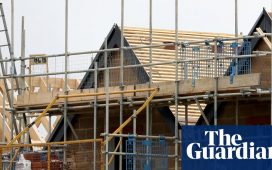Unlock the Editor’s Digest for free
Roula Khalaf, Editor of the FT, selects her favourite stories in this weekly newsletter.
A-level results day in the UK should mark the end of a stressful period of waiting. In recent years, though, soon-to-be university students — and their parents — have quickly faced a fresh headache: finding affordable accommodation amid an acute student housing squeeze.
In some of the most popular university cities, such as Bristol, some students have been housed in different towns, miles from campus. It is a pretty poor start to university life. But investors see an opportunity. London-listed Unite Group last month raised £450mn to develop and buy more student accommodation. Only in select locations, though, will the maths add up.
There is no evidence the accommodation crisis will ease. University applications this year, although down marginally on 2023, were still 6 per cent above pre-Covid levels, according to UCAS data. Since 2021, though, there has been an estimated reduction of 100,000-150,000 beds for students to rent in shared houses. Higher interest rates and more regulation is pushing small-scale landlords to quit.

New supply of purpose-built student accommodation, of the kind constructed by Unite and others, such as Empiric Student Property (ESP), is also 60 per cent lower than pre-pandemic levels, reckons the former.
On the one hand, the crisis has enabled landlords to push up rents. Unite is forecasting a 7 per cent increase in rents in its 2024-25 fiscal year. Higher rental prices helped drive a 14 per cent increase in its half year adjusted earnings to £125.3mn
That sounds like easy money. But construction costs have also jumped in recent years, even if inflation is now softening. Construction costs are currently north of £100,000 per en suite room in a private purpose-built student block, says David Feeney a partner at Cushman & Wakefield. To make developments worthwhile, he reckons companies will need to achieve weekly rents of about £230 for an en suite room. Only in certain cities, such as Bristol, Edinburgh, Glasgow and Manchester, where general private rental prices exceed that level, will students be prepared to pay this.
Shares in student accommodation developers have followed the general downturn in real estate investment trusts as interest rates have risen. They were also hit this year by fears of a further tightening of visa schemes for international students, although the former Conservative government backed off.
Both Unite and ESP are selective about where they develop. At some point an affordability ceiling will kick in. But for the next few years at least, the accommodation crisis should work in their favour.










